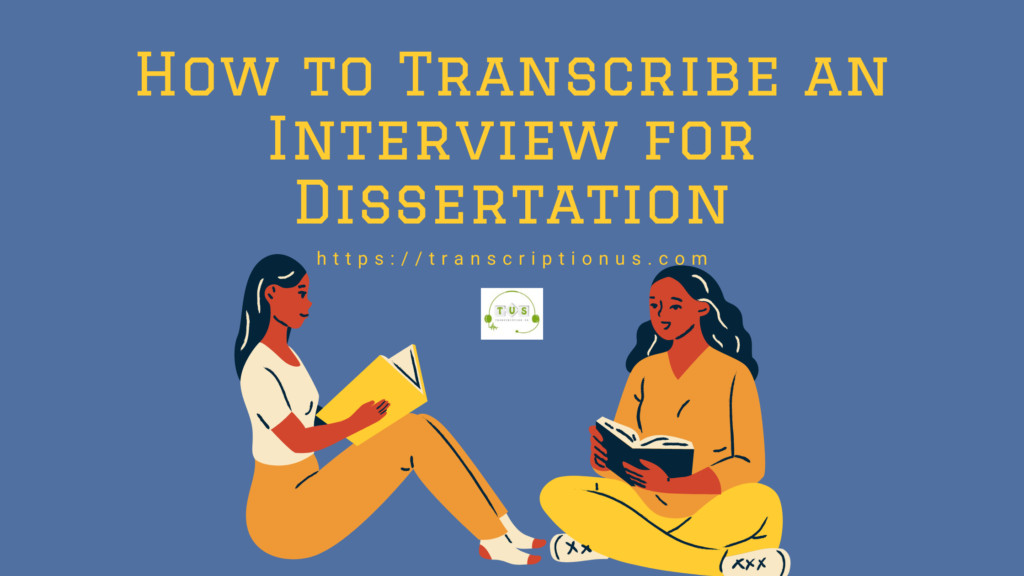
Transcription is quickly becoming a common trend as a cheap method of converting speeches into written content. Many people among them students are embracing it to make their presentations and particularly the interviews for dissertations. And what is a dissertation? It is simply a piece of document prepared by students sitting for professional courses like MBA or PhD. The student presents their research findings through a dissertation.
A dissertation is more or less a student’s passport to obtaining their academic goal and primarily that dream job. And this explains why they have to spend sleepless nights. There has been so much hassle in preparing the document. But the dust seems to be settling down; thanks to the availability of quality dissertation transcripts. They not only have great turnaround times but they also have much lower prices.
Reasons for hiring a professional transcription service
There are many things to transcribe; the likes of lectures, court and church sermons, conferences and audio recording. More often people will outsource transcription services. But there are benefits as to why a student will choose to transcribe research interviews: –
- Value for money
We all want to make a saving. Right? Outsourcing transcription services is one of the many ways of making a saving. Students will not only save money but also time. And at the end of the day they are assured of quality precise transcription.
- Improved turnaround time versus quality work
Apart from having limited resources, students also suffer from the time limits allocate for their dissertations. Remember we have agreed that it can be a tedious task yet it requires creative thinking. However, choosing to transcribe a dissertation interview gives the student time to engage in other academic activities. And besides, if handled by a professional, it will be within a certain turnaround time.
The process of transcribing a dissertation interview
Whether or the student will outsource the transcription of their work, their vital steps that are worth following to make the whole task a success.
- Every professional will agree with me on the importance of first listening to the recording as many times as possible. This helps in boosting their familiarity with it as they also take notes, which will reveal more understanding.
- From the notes, it is possible to create a rough transcript and perhaps move it to a word processor. Then listen to the audio again and try as much as possible to add more into the notes. At this point you ought to have incredible typing speed. You may choose to rewind the recording every now and then, but it is not strongly recommended.
- There are a lot of typos expected as well as missing bits. Other bits may not be quite right and this means going through the transcribed interview again. It is advisable to listen to the recording against the transcript. Editing and making accurate could also take some good share of time. At this point some people choose to use transcription software, which is easier to control using a foot pedal.
- Once all is done it is advisable to check the final transcript with the interviewee to confirm whether the transcribed interview is exactly what they meant.
What to look for in a transcriber
The research, study and preparation of a dissertation more often than not are usually on tight time schedules. Transcription is no easy either. But it will be necessary to use the services of a qualified transcriber. So what are these qualities?
- Good hearing skills: – More often the person on the audio usually speaks very fast. Sometimes there is background noise, which interrupts the audio. That means the transcriber must be on high alert with their listening to capture every detail.
- Speed and accuracy: – This is all about typing and good language skills, qualities, which are very vital for any transcriber. The person must also be knowledgeable about the subject matter, understand punctuation and grammatical errors as well as having the ability to translate different colloquial accents.
- Ability to multitask: – We are talking about being able to listen to an audio file and typing what they are hearing. This is followed by review and correction of grammatical errors.
- Commitment and confidentiality: – A credible transcriber must not reveal their client’s information; thus they must remain confidential. They must also express their commitment into the project to its completion.
All said and done, experience is of the essence.